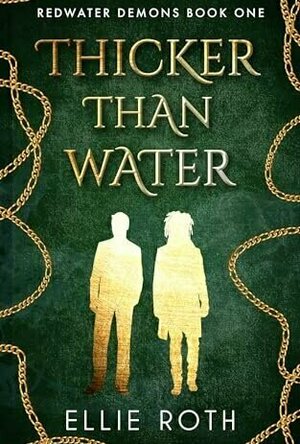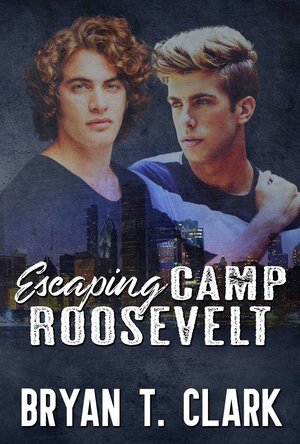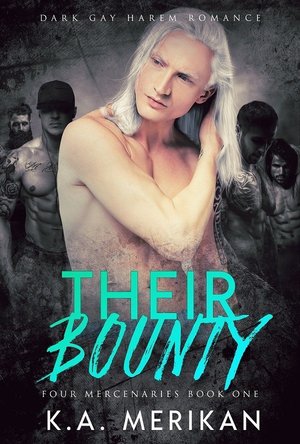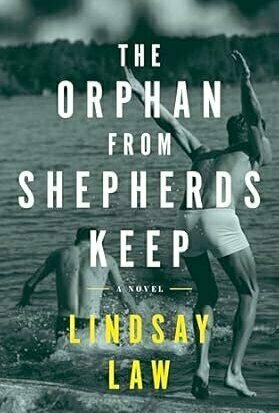
Love's Not Welcome at the Hotel Cairo
Book
Hughie must sell his hotel shares to save his dream. Fabian must persuade him to keep them for same...
Contemporary RomCom MM Romance Slow Burn May to December

Thicker Than Water (Redwater Demons #1)
Book
“Hate is learned, hunter. And I see you were a very good student.” “Thanks. I try.” ...

A Daddy for Christmas 3: Lorcan
Book
Lorcan I had the world in the palm of my hand until a false accusation sent everything to hell....
Contemporary Daddy / little Seasonal Romance
Kara Skinner (332 KP) rated Second Time Around in Books
Sep 10, 2019
Word Count: 8,140
Average Goodreads Rating: 2.67/5 stars
My Rating: 3/5 stars
Second Time Around is a story about mistaken identities. Jamie meets the man of his dreams, Matthew, at a party celebrating the opening of his new bakery. Better yet, Matthew seems to be into him. There’s just one problem: there’s a good chance Matthew is heterosexual and thinks Jamie is a girl.
You can read this book for free on Smashwords
Misunderstanding and mistaken identities can make for good stories. And Second Time Around isn’t an exception. The plot kept me intrigued throughout the whole story.
Jamie and his roommate John are both fantastic characters. I love John’s open-mindedness and his loyalty to his friend, and I love how Jamie is able to open up his own bakery and be himself instead of conforming to society’s rules.
I really wish I saw more of Matthew.
Unfortunately, I can’t get a read on his character because he’s barely in the story. You don’t actually see Matthew meeting Jamie at the party, it’s just talked about later.
Don’t get me wrong, Matthew seems all right. Aside from waiting two freaking weeks to talk to Jamie about the incident at the bakery. What the hell, dude? Yeah, you might have just met Jamie, and you need to talk to your brother about some things, but two weeks to check on somebody after that is excessive.
But that’s my only complaint about Matthew.
I really wish this story was longer and we got to see more of everyone, especially what happens to Matthew and Jamie, and what happens when Jamie meets Matthew’s brother. If it was longer, I might have gotten more attached to the characters and felt more about them. However, as is, it’s not a bad read, especially if you need a mood booster. So I only took off two stars for the length of the book and Matthew’s dick move.
Ali A (82 KP) rated The Extraordinaries in Books
Apr 15, 2020
This is the first book of TJ Klune that I read, and if I remember correctly, this is his first YA release - he did a good job! The Extraordinaries has a little bit of everything. LGBTQ characters, including a badass lesbian couple, we have superheroes, ADHD representation, and well rounded, unique characters.
I loved the friend dynamic of Nick, Seth, Gibby, and Jazz. They're all there to support each other no matter the topic. Which is great, because some of the things that Nick did in the book annoyed me so much. Here his friends are doing everything they can to support him and he'd be very self-centered about it... even doing something that, in all honesty, I don't see anyone doing older than ten, much less sixteen, because of how stupid it was. He remained frustratingly oblivious on a lot of things and it goes from being realistic to just plain stupidity.
The reveal is hinted nearly all the way through the book and I guessed it for the most part, which is what I think Klune was trying to do. There are quite a few twists that I wasn't expecting so that made the novel exciting.
Overall, it was a good YA debut novel. I've already got the sequel on my lists to look out for.
*Thank you BookishFirst and Tor Teen for the ARC of this book in exchange for an honest review

Escaping Camp Roosevelt
Book
“He’s a bad boy—cocky and damaged. So, why can’t I stop thinking about him?" Broken...
Contemporary MM Romance

Their Bounty (Four Mercenaries #1)
Book
--- Taken. Prized. Possessed. Loved. --- Clover is an orphan and has led a tough and chaotic...
Dark Harem Romance LGBTQ+

The Orphan from Shepherds Keep: Three Men, Three Intertwined Lives, One Rightful Place in Each Other's Heart - A Gay Nov
Book
Over a period of thirty years, three gay men struggle to define themselves and make their mark on a...
LGBTQ+ Coming of Age Forbidden Love Love Triangle Slow Burn Found Family

Leaving Winter for a Desert Sky
Book
Erin has spent the last six years abroad, teaching English in Spain, France, Japan. Now, she’s...
Literary LGBTQ+
Becs (244 KP) rated After The Shot Drops in Books
Feb 10, 2020
Representation: POC, LGBTQ+, own voices, poverty
I was a bit worried that I wouldn’t have truly liked this book as it was a sports related young adult contemporary book, and I just am not that into sports fiction. Boy, was I completely wrong!! I read this entire book in one sitting and I just could not get enough of it. I, no joke, devoured the entire thing and was flipping through pages like my life depended on it.
After the Shot Drops starts off at a rather typical pace for a young adult contemporary book. It was neither rushed and boring nor screamed at me to keep going. It lied in that perfect middle ground of – you should definitely keep reading as you’re not going to want to miss this story. The plot follows a multi POV setup with Bunny and Nasir being the main POVs. Bunny is a high school junior who decided to leave Whitman High to go to a prep school as he wanted more out of his life and basketball career. Nasir was Bunny’s best friend before Bunny decided to up and leave without saying anything to anybody until the last minute.
There were other minor characters as well that really added parts to the story, so we can’t forget them. Wallace, Nasir’s cousin and close friend after his friendship with Bunny fell through. Wallace was one that couldn’t seem to ever make the right choices in life. And in the end, karma bit him back real hard. Then there was Keyona, who was Bunny’s girl and the long time crush of Nasir. She was constantly there for Bunny since his friendship with Nasir was non existent.
Can we take a moment and talk about the representation that was packed into this book? Because holy cow. This is my first five star read of the year and it did not disappoint one bit. There was multiple of POC (person of color) rep, a bit of LGBTQ+ rep, and this novel really focused on showing the different sides of poverty and a bit of the wealthy side as well. It also had the “don’t judge a book by it’s cover as you don’t truly know what someone is like behind the facade they have up” trope and I was living for it every step of the way in After the Shot Drops.
For me to rate this so highly, was honestly really surprising as I was not expecting such a high star rating! As I read and the more I read, I grew to care for each of the characters. I was saddened and heartbroken that some characters were living extremely rough and happy when moments of happiness popped through. This novel really hit home to me as I grew up in a poverty stricken household. I was almost brought to tears multiple of times within this novel as well. I was into this story for the characters and the plot, not the sports – but those did add an appealing nature to the story.
Randy’s writing was music to my ears. It was easy to comprehend every little thing that happened, every little detail, every heartbreaking moment, and every plot twist that befell this remarkable story. The writing was just what I needed to pull me out of my reading slump. It was crisp, beautiful, well thought out, and an instant adoration on my part.
This is one story that I will not only highly recommend to middle and high school students, but also to adults as well. As the story is not only something everyone needs to read, but also the meaning behind every action taken within this novel is something that everyone needs to reflect on. The build-up will leave you wanting more of Randy’s writing and will leave your emotions in shambles. Please, please, please, read this one!!!
_____________________
<a href="https://bookingwayreads.wordpress.com">Blog</a>; | <a href="https://https://www.instagram.com/ernest.bookingway/">Bookstagram</a>; | <a href="https://https://twitter.com/bookingwayreads">Twitter</a>;


